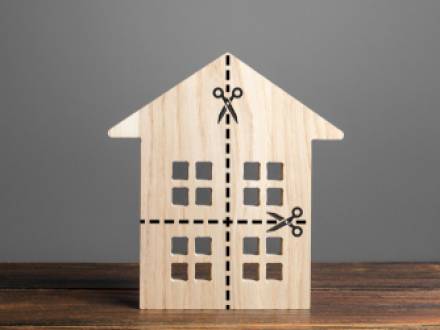 630-393-3111
630-393-3111
4200 Cantera Drive, Suite 200 | Warrenville, IL 60555
Understanding Marital vs. Non-Marital Property in an Illinois Divorce
 The divorce process is different for every couple because it is extremely personal. Many elements impact what your divorce looks like, including whether you have children and how many assets you have separately and together. To understand the division of assets, you first need to know how Illinois law differentiates between separate, also known as non-marital, and marital property. A DuPage County, IL asset division attorney can help you navigate the process, which is especially useful if you have a complex portfolio.
The divorce process is different for every couple because it is extremely personal. Many elements impact what your divorce looks like, including whether you have children and how many assets you have separately and together. To understand the division of assets, you first need to know how Illinois law differentiates between separate, also known as non-marital, and marital property. A DuPage County, IL asset division attorney can help you navigate the process, which is especially useful if you have a complex portfolio.
How Does Illinois Law Define Marital Property?
The Illinois Marriage and Dissolution of Marriage Act addresses the characterization of marital and non-marital property. In general, everything you acquire together as a married couple would be marital property. This includes income, assets, and debts. As an equitable distribution state, these assets will be divided based on consideration of certain factors, including your contributions to the property. Common examples of marital property include bank accounts, real estate, and vehicles.
How Does Illinois Law Define Non-Marital Property?
Illinois’s Marriage and Dissolution of Marriage Act also defines non-marital property. For the most part, everything acquired during a marriage is assumed to be marital property until you prove otherwise. Exceptions that are clearly non-marital include:
-
Inheritance received before the marriage or during the marriage but kept separate
-
Property you acquired before the marriage
-
Property you acquire after the divorce
-
Assets listed as non-marital in a valid prenuptial agreement, meaning one that is signed by both parties voluntarily
-
Contributions you made to a retirement plan before the marriage
-
The value of appreciation on non-marital property that you kept separate during the marriage
-
Income earned with separate property, such as stock that you owned before you were married
The line between marital and non-marital property can blur sometimes. If you have concerns about what will happen to your property during divorce, a knowledgeable attorney can help.
Can Separate Property Become Marital Property?
Commingling of property is often how non-marital assets can become marital assets, making them subject to division. For example, if you received a substantial amount of money as part of an inheritance and placed it in a shared account that both you and your spouse used, your inheritance would likely be considered marital property. If kept separate, it would remain non-marital property. Essentially, any time you liquidate an asset or "mingle" it with shared assets, you risk it becoming marital property.
Another common way to blur the line is to make contributions from marital assets or co-contribute to non-marital property. For example, if you owned a home before the marriage, it would likely be separate property. However, if you and your spouse contributed to remodeling it, it could become marital property.
Contact a Naperville, IL Property Division Divorce Attorney Today
I understand how sensitive the topic of property division is and am committed to ensuring that my clients feel as comfortable as possible with the process. As a DuPage County, IL division of assets lawyer and family law lecturer, I am familiar with the laws that govern these cases and how best to apply them in support of my client’s wishes. Call [[title] at 630-393-3111 to schedule an initial meeting to discuss the specifics of your case and address all your questions.


 4200 Cantera Drive, Suite 200, Warrenville, IL 60555
4200 Cantera Drive, Suite 200, Warrenville, IL 60555 630-393-3111
630-393-3111





